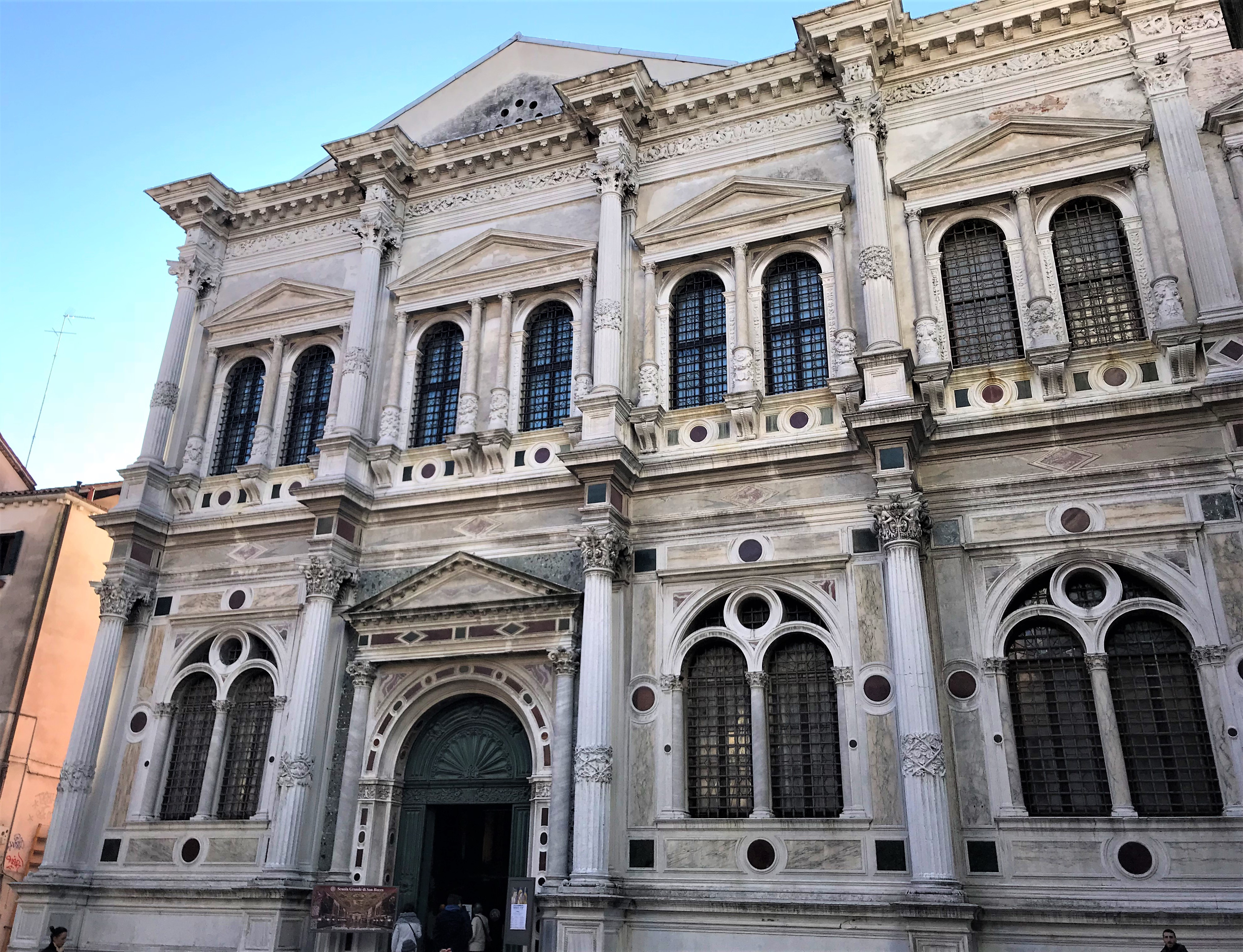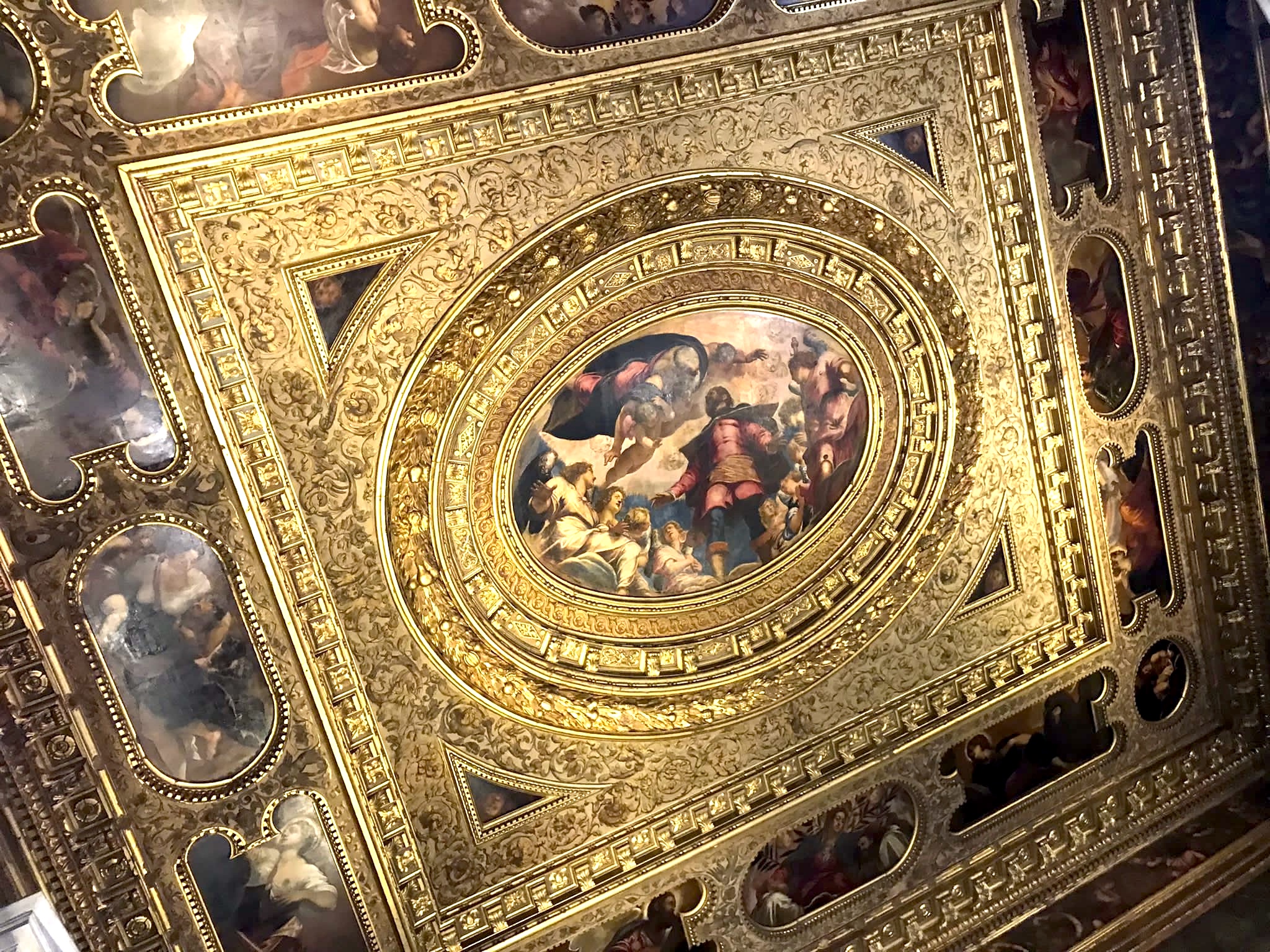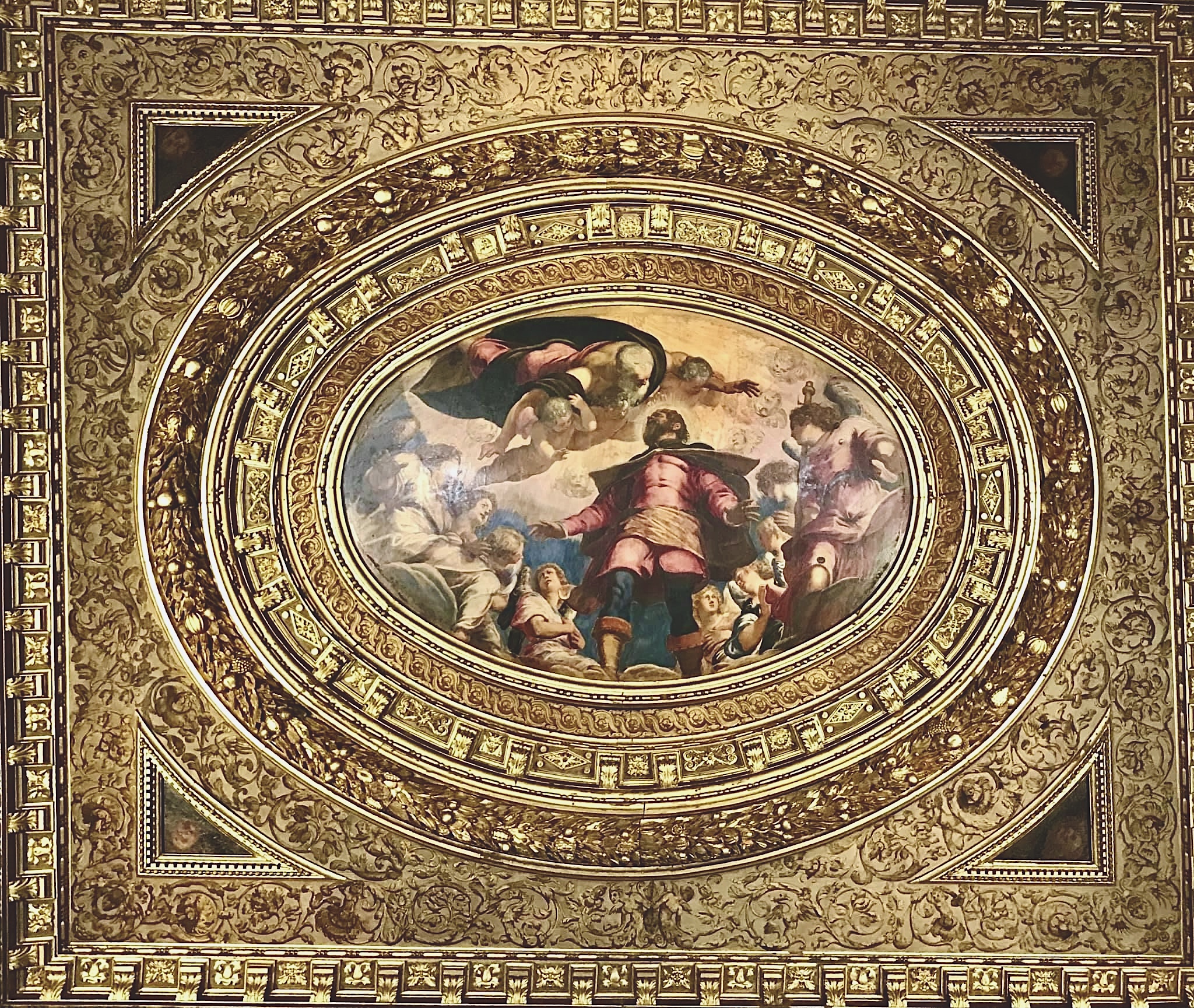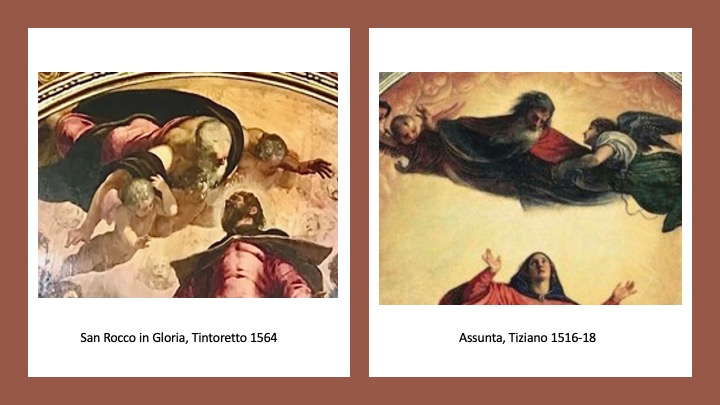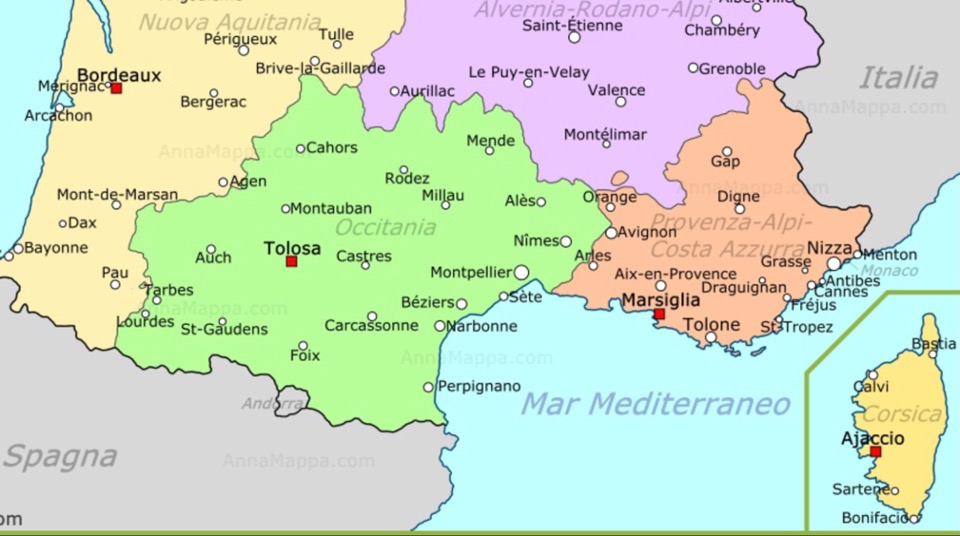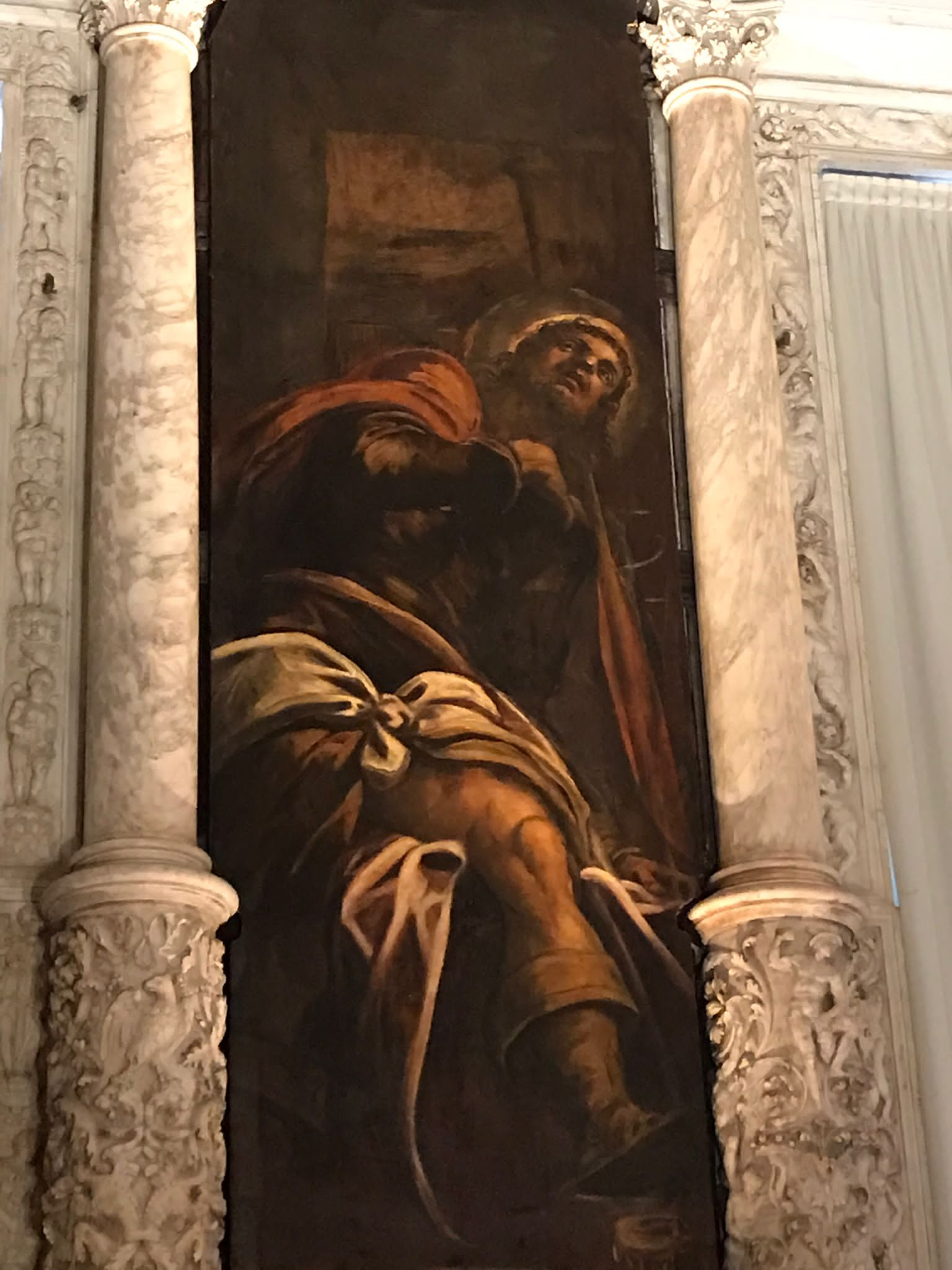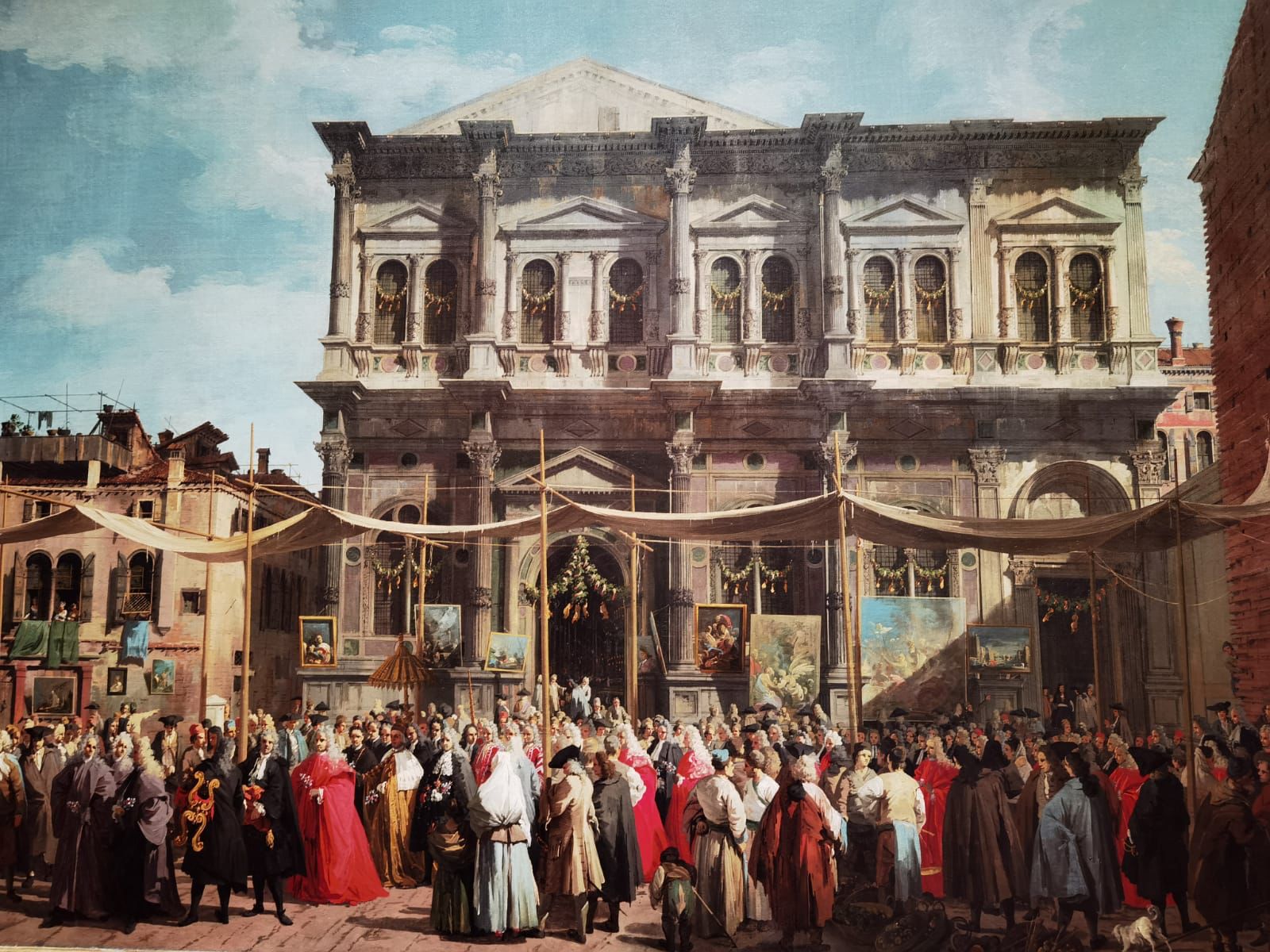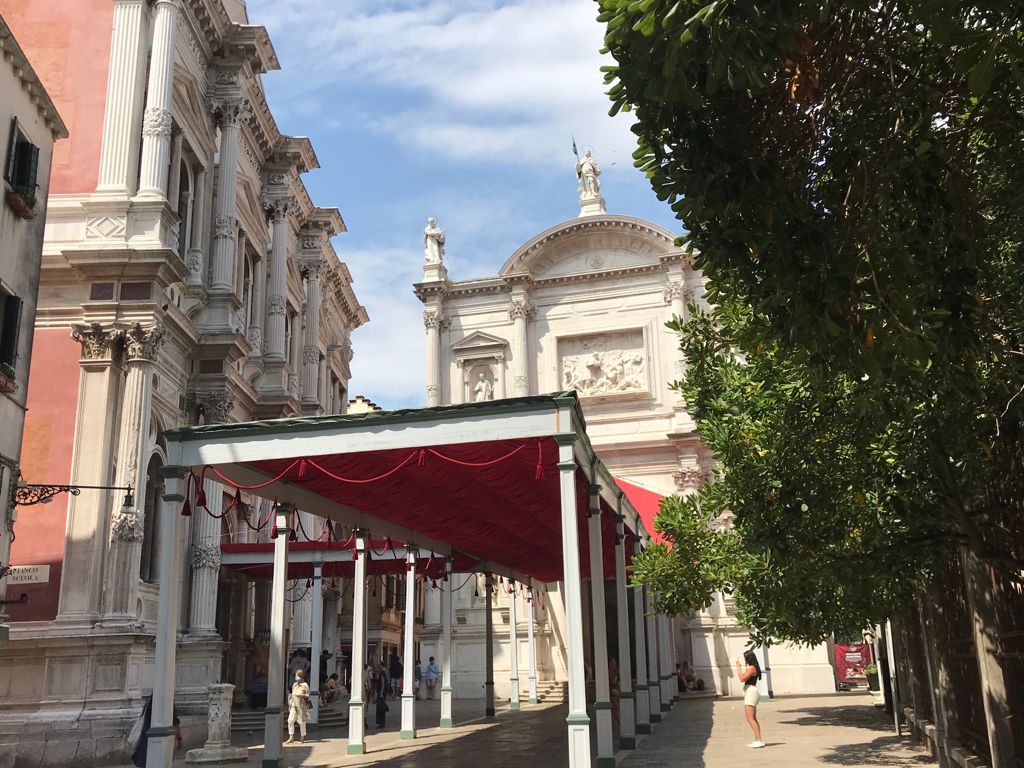A must-see in Venice
When 1564 Tintoretto painted
his first masterpiece for Scuola Grande di San Rocco, quite a few Venetians were really amazed.
Façade of the Scuola Grande of San Rocco
The
Confraternity had promoted a
competition for the decoration of the Hostel Room, and the most relevant artists of the period had sent their sketches and drawings.
But the astute
Tintoretto, determined to get the job, changed the rules:
he donated to the Scuola the painting The Glory of Saint Roch, which was ready to be inserted in the central compartment of the ceiling frame in the Hostel Room.
The ceiling of the Hostel Room (Sala dell'Albergo)
Thanks to this trick, which caused quite a few polemics among the other painters,
he was commissioned the decoration not only of the Hostel Room, but also of all the others: the Chapter Room and the room on the ground floor.Between
1564 and 1587 Jacopo Robusti painted the
35 canvases that we can still see in the majestic Scuola Grande di San Rocco.
The Glory of Saint Roch
The Saint is represented in an impressive
foreshortening, and
he dominates the scene. The Saint’s clothes are
red and blue, he looks up towards
God the Father, who is waiting for him with open arms, surrounded by
golden light which merges with the frame of the same colour.
The Glory of Saint Roch
These
colours are unusual in Tintoretto’s palette: probably, he used them because he really wanted to
get the commission; or maybe because he wanted to show he could paint in the same manner as
Veronese did; or possibly he meant to underline the fact that he could paint God with open arms at the top of the canvas, similarly to the one painted by
Titian in his revolutionary
Assumption of the Holy Mary.
Regardless of his intentions, the Scuola Grande di San Rocco was decorated in such a way that it is now considered some sort
of Sistine Chapel by Tintoretto, an extraordinary, although grumpy and not always honest, painter, whose
quick brushstrokes made his style peculiar and genial.
Who was Saint Roch?
Saint Roch was born in
Montpellier (France) between 1345 and 1350. He dedicated his life to
heal those that were sick with plague, roaming in Italy from city to city.
Map of the South of France
As he was travelling back to France,
he contracted the plague, and he passed the period of his illness in a wood, nearby Piacenza, away from anyone… only
a dog would bring him some bread every day.
When he recovered, proceeding on his way back home, he was accused of spying and was
imprisoned at Voghera, where he spent the last years of his life. He
died during the night between the 15th and the 16th of August in 1376/1379.The Saint became the
protector of those that had contracted the plague; his relics rest in
St. Roch’s Church in Venice.His symbols are the
dog, the
stick and the pilgrim’s hat; the Saint is normally represented as he lifts up his clothes to show the
plague bubo on his leg.
Saint Roch, Scuola Grande di San Rocco
Still nowadays St. Roch is venerated in Venice, and every year, on
August 16th, since ancient times, the campo in front of the Scuola and the Church is decorated with
a red carpet and a red tent for those that enter these buildings to attend the celebrations, which include concerts and religious functions.
'The doge visiting the church and the Scuola Grande of Saint Roch', Canaletto 1735, National gallery, London, (pic by Larissa Fedorov)
San Rocco campo decorated for Saint Roch Feast on August 16th.
We’ll be waiting for you to take you on a
guided tour of Scuola Grande di San Rocco, to admire together
all the masterpieces by Tintoretto! Ciao!
Contacts:
info@guidedtoursinvenice.comYou might be interested also in the following itineraries and blog posts:The Frari church and the Scuola Grande di San Rocco (section:
Classical tours Venice)
The Gallerie dell'Accademia (Accademia Galleries) (section:
Classical tours)
Venice and the plague (section:
Specific tours Venice)
Merry Christmas from Venice with Jacopo Tintoretto (section:
Blog)
The Doge's tent: Scuola Grande di San Rocco (section:
YouTube)
